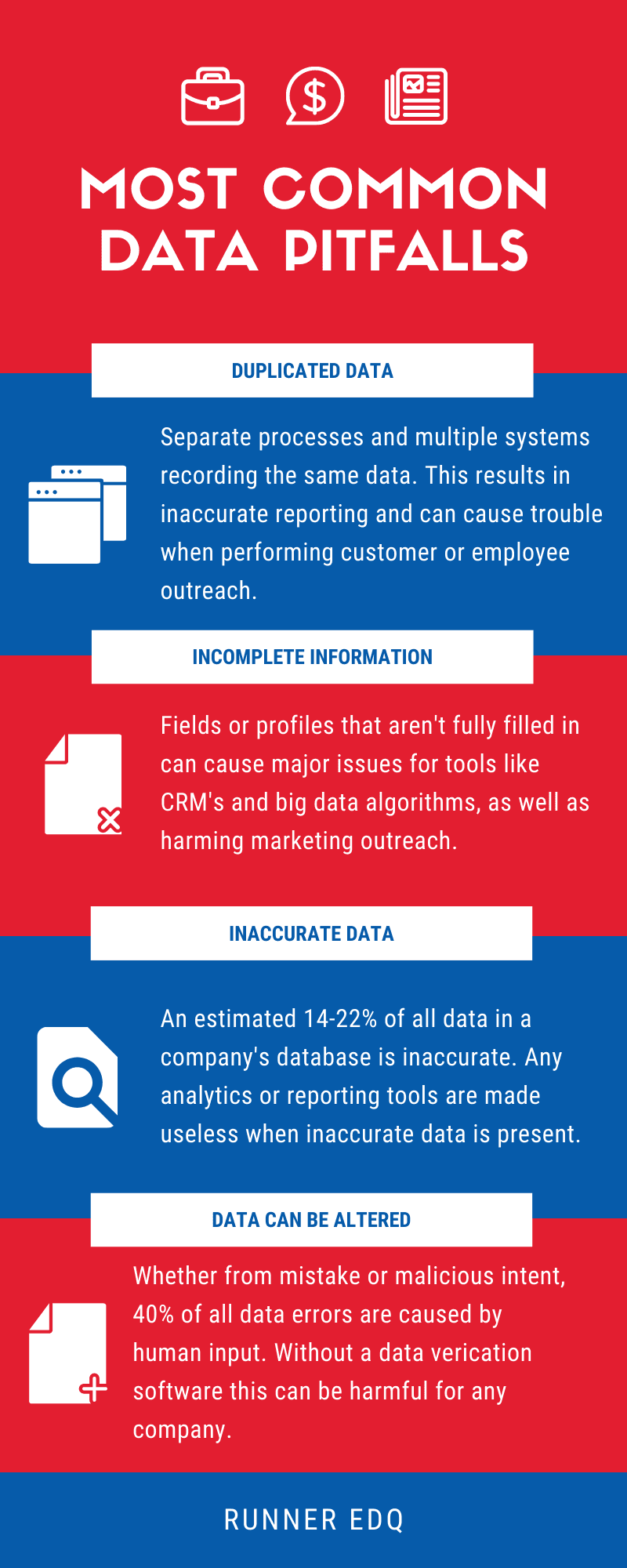What Happens to Improperly Managed Data
2 MINUTE READ
Data quality is important, but have you ever wondered what happens when data is not used properly?
The five most important consequences of poor-quality data can be:
Poor decision-making
MistrustBusiness inefficiencies
Lost revenue
Missed opportunities
So you need to follow the five principles when dealing with data:
Accuracy – The correctness of values entered in the different fields of the database record.
Completeness – Users must be absolutely sure as to what comprises a particular piece of data.
Uniqueness – One thing in the real world must correspond to only one piece of your data.
Consistency – The information is in agreement with underlying details.
Timeliness – Data has to be current with respect to the business’s needs. So what are the common data quality pitfalls to avoid?
Duplicated Data
Duplicated data is an issue every company has to deal with. This often occurs as the result of separated processes and multiple systems recording the same piece of information. Having multiple copies of the same item can significantly alter the results or lead to wasted effort.
This could result in customers receiving a few identical marketing messages, which can annoy them. To avoid this, you need to have data deduplication tools. These algorithms go through very large data sets and find duplicate records.
Incomplete Information
Fields that aren’t fully filled or are left blank can be a major issue for tools such as automated marketing solutions, CRM software, and big data algorithms. For example, entries without ZIP codes can make critical analytics processes useless, as the data lacks essential geographical information that can help you notice trends and make decisions.
You must ensure records can’t be created unless all necessary information is included, or you need to set up systems to exclude incomplete entries.
Inaccurate Data
Logically, there’s no point in performing big data analytics or contacting customers based on data that is just wrong.
These can often be the hardest data quality issues to notice, especially if the formatting is considered acceptable. Entering a valid but incorrect social security number, for example, might be left unnoticed by a database since it’s only checking the veracity of the input.
The Majority of Data Isn’t Helpful
The sad truth is that most of your data will be unusable. This could be for many reasons, but the number one is that enterprises might feel rushed to implement changes. In that rush, they forsake the accuracy of the data for the perceived image of progress. Also, if data isn’t accurate, and you implement processes anyway, you’re at risk of implementing them wrong, which means even more wasted revenue and time. Therefore, it’s vital that you ensure data quality for any business initiative.
Data Can Be Altered
If you are not using an automated business intelligence solution for your business, it’s important to know that data can easily be altered to misrepresent the truth. For example, an employee might be tempted to mess with the numbers a bit in order to lessen the impact of a failed project. However, this doesn’t help your company. The importance of accountability and transparency cannot be ignored for any business intelligence software.







